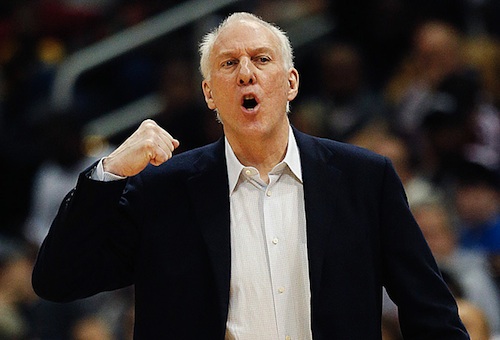For better or worse, we live in an instant gratification society right now. This is evident in a few walks of life, from the emergence of social media (cited by everyone) to business (focus on quarter-by-quarter results, which ultimately tell you very little about the sustained health of an organization and its people), and sports (if you’re not getting it done in 2-3 years these days, you’re canned; look at the Cleveland Browns as perhaps the most recent example). Gregg Popovich is an interesting counter to this — first of all, and most evidently, he’s been with the Spurs for 18 years. In the four major sports, no one has done that among current coaches (Belichick and perhaps Mike Scioscia are the only other names that would even come to mind right now). To boot: Popovich once coached Pomona (1979-1988), and his first season there, the team was 2-22. A few decades later, he’s right up in the discussion for one of the greatest coaches of all-time. Now, you can argue that he’s pretty much always been successful as an NBA coach — only his first season was a total train wreck — but what I like about Popovich’s successes the most is that it’s a lesson totally counter to how we think about sports in the modern age. If someone isn’t winning 70 percent of their games by Year 1.7, we’re calling for their head. But if you really look at it, the best coaches are sometimes those who struggled at a previous stop — in Nick Saban’s first four years at Michigan State, for example, he never won more than 7 games. Just like a job or a relationship, coaching is about fit and context — a guy that went 2-22 at Pomona can someday win five NBA Championships as a head coach so long as he gets the right guys and the right system. But that takes a bit of time to evolve, so remember, everyone: deep breaths. Sometimes the waiting can make it better.
Gregg Popovich and the lesson of sticking with someone (or sticking with it)
